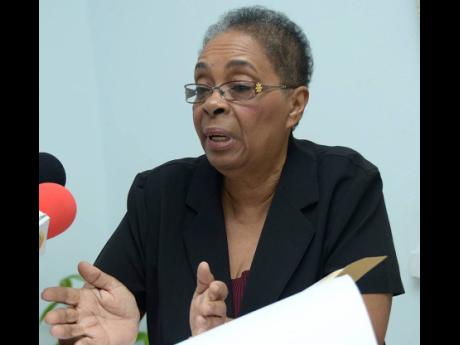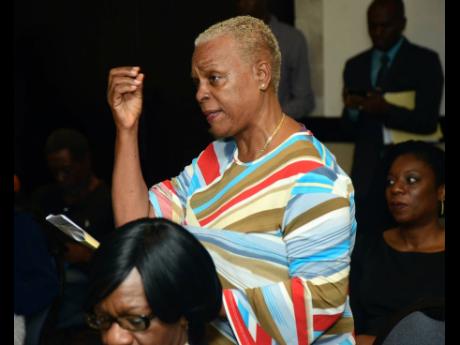SSL scandal raises ghosts of 1990s for FINSAC victims
When Yola Gray-Baker learned of the financial scandal unfolding at Stocks and Securities Limited (SSL), where some 40 clients were reportedly defrauded of billions of dollars, she felt the same sick feeling of the 1990s financial saga, in which her husband’s $10 million loan ballooned more than a hundred times. Today, in 2023, he still owes $85 million.
Gray-Baker said their lives were shattered in 1994 after her husband, Milton, a successful building contractor at the time, borrowed $10 million at 35 per cent interest to do two contracts, using his house along with two other properties as collateral.
One client was unable to pay, while the other refused to pay for the job, despite a court ruling.
As a result, the Bakers lost four properties.
Gray-Baker said although the loan was serviced and up to date, it was turned over to the Financial Sector Adjustment Company (FINSAC) and was one of 24,000 loan accounts sold to overseas debt collector, Dennis Joslin, founder of Jamaica Redevelopment Foundation Inc (JRF).
The Bakers repaid close to $52 million, and have lost all their tangible assets, including their Grosvenor Terrace, St Andrew, home and are still indebted to the JRF.
“People lost their money, properties, lives and livelihood to the financial meltdown in the 1990s and there were more than 40,000 victims. My family was one,” she told The Sunday Gleaner last week.
“Now in 2023, people again lost ... to unscrupulous financial practices by the very people who were to protect them. So many things were put in place after the lessons of FINSAC and still this happens... The FSC (Financial Services Commission) is the watchdog. It came into being in 2001 to prevent this. What was it doing? Jamaica is not a real country.”
OVERWHELMING BURDEN
Gray-Baker, who is the president of the Association of Finsac’d Entrepreneurs, said she personally knows of persons who committed suicide as the burden of the losses hit them.
She said there were others who died of heartbreak, while the mental health of others was also affected. Many are still fighting today for their properties, while some have lost confidence in Jamaica’s financial sector.
She is also peeved that the report from the FINSAC Commission of Enquiry, set up in 2008 to probe what went wrong in the 1990s financial crisis, is still outstanding.
The release of the FINSAC Report, she said, would provide the public with a clear view of what happened in the 1990s.
“Are we serious? Nearly $200 million spent to produce a report which nobody has. We have been promised this report at intervals, and I am convinced that we will not see a sheet of paper of it. And nobody is going to prison. Only the depositors will suffer,” she stated.
Leading up to the 2007 general election, finance minister Audley Shaw promised an enquiry into the ordeal. It began late in the term of the Bruce Golding administration of 2007 and crossed over into the 2011-2016 administration of Portia Simpson Miller. Dr Peter Phillips, as finance minister, said he did not receive a report from the FINSAC enquiry and the government was not prepared to pay any more money towards its completion. The 2016 Andrew Holness administration allocated more funds for its completion, but to date it is still outstanding.
‘TOO BLACK TO SUCCEED’
Valerie Dixon’s family was also impacted by the financial sector debacle and has written a book detailing their experience.
Her book ‘Too Black to Succeed: The FINSAC Experience’ chronicles the obstacles the black majority faces in Jamaica. She believes that no matter how hard many have tried, there are always hurdles preventing them from achieving their best.
“I am sorry that Usain Bolt and all the others are affected by this scam. But in a way, if Bolt was not affected I don’t believe that we would hear much about it, just like how we can’t get the FINSAC report. Do you know how many persons see their properties advertised for sale? Some are fighting, and others refused to leave their properties for fear that people will come and take it over,” Dixon shared.
She, too, checks regularly to see if her family’s property has been put up for sale.
“It’s about time someone pays for what they have done to us,” she said.


